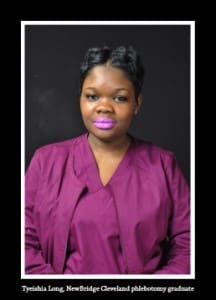Join us in celebrating International Literacy Day, September 8th!
For the third year The Literacy Cooperative in partnership with Cleveland Public Library, Cuyahoga County Public Library, and WKYC, will celebrate International Literacy Day, September 8, 2016, promoting the importance of literacy and reading with a social media campaign. (We are also holding our inaugural Corporate Spelling Bee on September 8th as well). Last year we had over 500 pictures shared on Facebook, Twitter and Instagram. We also trended #1 in the Cleveland area.

The city of Cleveland is already coming together to celebrate International Literacy Day with us! Some great pictures from Cleveland police officers, Captain Sulzer and Community Policing Commander Johnny Johnson, the Mayor of South Euclid, the team at Books@Work and the team from NEO Regional Library System!
Why is this so important? Literacy is an essential skill, one we use every day. Whether it is checking a bus schedule before work, reading a recipe to make dinner or taking medications before bed; it is a skill many of us don’t even think about using. For many though reading is difficult, limiting their everyday lives. In Cuyahoga County 435,000 adults read at or below a 7th grade level. For these low-literate adults daily life can be a struggle. Low literacy limits their job opportunities, which in turn limits their ability to earn a livable wage and take care of their families. Lack of literacy skills can make it difficult to help their children in school; causing their children to lose a valuable resource for their own successes. Even every day activities, like grocery shopping and cooking are difficult. They may be unable to read nutritional information on food, limiting their ability to make healthy choices for themselves and their families.
This may seem like a large crisis, one beyond your capabilities to help, but that is not true. One of the main ways you can help is by raising awareness on International Literacy Day, Thursday September 8th . International Literacy Day is a global campaign instituted by UNESCO (the United Nations Education, Scientific and Cultural Organization) to raise awareness about literacy and how it is critical to our region’s economic future.
The theme for this year’s campaign is Recommended Reads. On September 8th, we are asking everyone to post a reading selfie with a book or books that you recommend for others to read. It can be an all-time favorite book, a new release that you fell in love with or even an interesting article. Then be sure to share your pictures on Facebook, Twitter and Instagram with #CLEreads2016 and #RecommendedReads. Be sure to follow the hashtags yourself to see what others are posting and to get some reading suggestions for yourself.
Don’t have the book on hand? No problem, just post a reading selfie and include the title and author of the book you would like to recommend in your post. Be sure to tag the author in your post. There is nothing a writer enjoys more than seeing their work recommended to others. Want to help a low literate adults improve their reading skills? Suggest a children’s book for parents to read to their children. We want everyone to end the day with having added at least one book to their “to-read” list as well as have heightened their awareness about literacy in our community and country.
We have an additional way you can participate in this very important day with us. During the month of September the library systems of Cuyahoga County are promoting “A Card for Every Child,” initiative. The initiative seeks to ensure that all children under 18 in Cuyahoga County own a library card.
In preparation for the day we are asking you to encourage your followers, friends, family and colleagues to go to the library and get their library card. Don’t have one yourself? Set an example and get your own card. The library is full of wonderful books for you and for you to recommend to other
International Literacy Day is an important day to raise awareness about the importance of literacy. It only takes a few simple steps to participate:

Please consider joining us in celebrating International Literacy Day on September 8th. Low literacy in our community is a crisis. One that desperately needs your help and attention. One picture and post on September 8th can do so much to help us continue to raise awareness about this important issue.
We look forward to seeing all the fantastic reading selfies and great book recommendations!
Make sure you are following us on Twitter, Facebook and Instagram (@literacycoop) to stay up-to-date on the activities of the day!

 Elizabeth Poulos interned with The Literacy Cooperative from May to July of this year (2016) as part of the Williams Alumni Internship Grant. The Williams Alumni Internship Grant is designed to allow students to engage in constructive and innovative projects which address significant needs, link knowledge and structural change within society. Ms. Poulos will be a sophomore at Williams College in Williamstown, Massachusetts.
Elizabeth Poulos interned with The Literacy Cooperative from May to July of this year (2016) as part of the Williams Alumni Internship Grant. The Williams Alumni Internship Grant is designed to allow students to engage in constructive and innovative projects which address significant needs, link knowledge and structural change within society. Ms. Poulos will be a sophomore at Williams College in Williamstown, Massachusetts.  The summer is winding down. How have you spent these warm weeks? On a family vacation? Taking walks in the park, playing at the beach? Going to festivals or amusement parks? How about reading together or doing a handful of math problems with your child once a day?
The summer is winding down. How have you spent these warm weeks? On a family vacation? Taking walks in the park, playing at the beach? Going to festivals or amusement parks? How about reading together or doing a handful of math problems with your child once a day? The summer is a great time to get children outside and active. You can create reading games, such as a vocabulary scavenger hunt. Label items throughout your yard or hide certain words in the trees and bushes. Have you child run about finding all the words and then use them to create sentences and stories. They are active and learning at the same time!
The summer is a great time to get children outside and active. You can create reading games, such as a vocabulary scavenger hunt. Label items throughout your yard or hide certain words in the trees and bushes. Have you child run about finding all the words and then use them to create sentences and stories. They are active and learning at the same time! Juan is a 58-year-old veteran who grew up in a tough neighborhood in Chicago. To escape the poverty and violence around him, he joined the army at the age of seventeen and served in Panama where he was trained as a Combat Medic. After an honorable discharge, Juan returned to Chicago and embarked on a music career. He always had a talent for music, and he played as a percussionist with bands in the Latin night clubs. Although his music career was very successful, Juan became too involved with the darker aspects of night life and developed an addiction to drugs and alcohol.
Juan is a 58-year-old veteran who grew up in a tough neighborhood in Chicago. To escape the poverty and violence around him, he joined the army at the age of seventeen and served in Panama where he was trained as a Combat Medic. After an honorable discharge, Juan returned to Chicago and embarked on a music career. He always had a talent for music, and he played as a percussionist with bands in the Latin night clubs. Although his music career was very successful, Juan became too involved with the darker aspects of night life and developed an addiction to drugs and alcohol. Tyeishia, 24 years old with a two year old daughter, had lived in her car or slept on a mattress at a different home every night for more than a year because she had no money for a place of her own. She felt hopeless, stuck earning $8 an hour at a local photo shop and barely paying her bills. Unfortunately, Tyeishia lacked the skills or experience to change the pattern of living paycheck to paycheck.
Tyeishia, 24 years old with a two year old daughter, had lived in her car or slept on a mattress at a different home every night for more than a year because she had no money for a place of her own. She felt hopeless, stuck earning $8 an hour at a local photo shop and barely paying her bills. Unfortunately, Tyeishia lacked the skills or experience to change the pattern of living paycheck to paycheck.